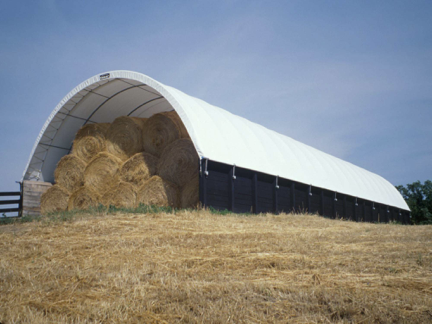
During a discussion of the economics of forage-livestock production, the point will usually be made that stored feed (predominately hay) should be a major consideration. It is a fact that feeding animals during times when pasture forage is not available is typically the greatest expense associated with production of grazing animals.
Most producers know hay is costly, but it seems that many may not fully realize and appreciate just how costly it is. Livestock production budgets are readily available online from many agricultural universities. To find such budgets, simply do a computer search using words such as “University of (whatever) beef production budgets.” Anyone who carefully reviews such budgets should soon be convinced of the immense impact of hay on animal production costs.
The economics of livestock production has changed recently, and not in a positive way. It appears likely that various factors, especially the increased cost of inputs, may soon result in changes in producer attitudes and management approaches, especially with regard to hay.
First, it seems that many producers may be forced to put more effort and creativity into developing strategies that will help reduce the amount of hay they need. A national level publication titled, “Extending Grazing and Reducing Stored Feed Needs.,” summarizes approaches that are used in various parts of the nation to accomplish this objective. Use of that title in a computer search will provide access to this publication.
Most producers will continue to need some hay, but how they get it may change. There are several valid reasons why people opt to produce, rather than purchase hay, but any producer who is truly serious about improving the cost effectiveness of their livestock operation would do well to seriously compare the financial impacts of each approach. The cost of owning and operating hay equipment makes it quite difficult for a producer who has only a relatively small number of animals to economically justify producing hay.
Hay quality is another factor that justifies consideration. If hay does not meet the nutritional requirements of the animals to which it is fed, one of two things will happen: (1) weight gains and possibly reproductive efficiency will be less-than-optimum; or (2) supplemental feeds will need to be provided. Either of these scenarios is likely to be considerably more expensive than providing hay of adequate quality.
When a person purchases hay, he or she can (and should) determine the quality of the hay. If the quality isn’t suitable, they don’t have to buy it. If they produce hay themselves, they can likewise determine the quality, but if it is inferior, the remedy may be costly and troublesome.
Purchasing hay eliminates the cost and labor associated with equipment maintenance. In addition, buildings that would otherwise be used to house equipment could be used for other purposes, including to provide an excellent place to store hay. Lastly, if land that had once been used to produce hay is converted to pasture, the additional pasture forage available would likely increase the livestock carrying capacity of the farm and/or reduce the amount of hay needed.
Commercial hay producers have the advantage of economy of scale, they typically develop much production expertise, and generally can provide much attention to detail. Thus, both hay yield and quality are likely to be higher as compared to a farm on which hay production is one of many enterprises.
It seems logical to believe that having more and larger commercial hay farms, and fewer farms on which small amounts of hay are grown, could be beneficial to both hay producers and livestock producers. This may or may not occur, but history has shown that financial considerations can have a major influence on production approaches.
__________________
Foraging Ahead is a column presented by Ragan & Massey and written by Dr. Don Ball, Professor Emeritus at Auburn University. Dr. Ball is one of the authors of the popular book “Southern Forages,” which can be found via a computer search that uses the words, “Southern Forages, The Fertilizer Institute.”
